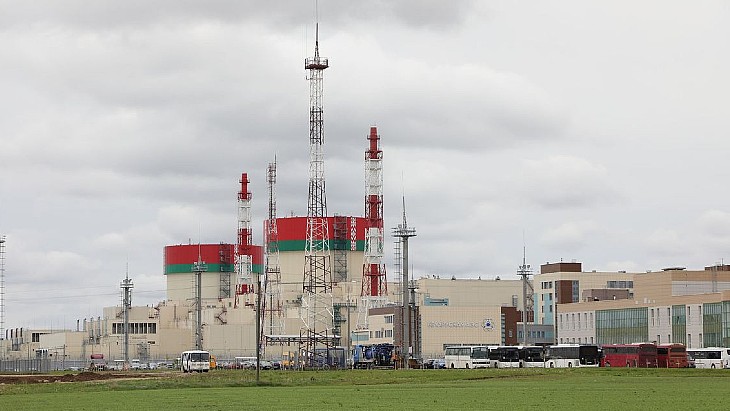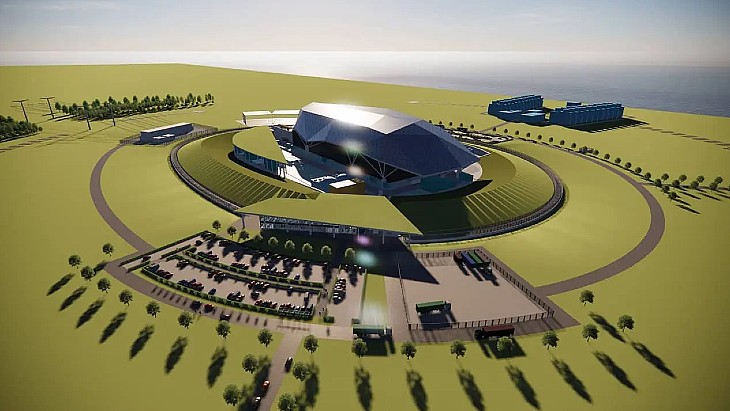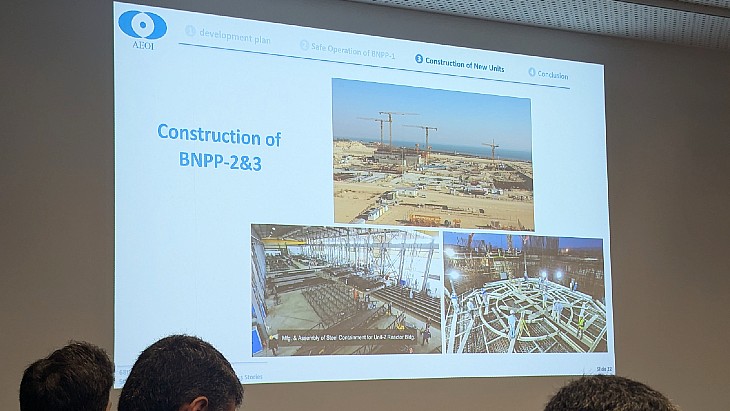Second Belarus unit enters commercial operation

The first power unit - also a Russian VVER-1200 reactor - was connected to the grid in November 2020 and, the energy ministry says, the plant will produce about 18.5 TWh of electricity per year, equivalent to 4.5 billion cubic metres of natural gas, with an annual effect on the country's economy of about USD550 million.
Rosatom said that since the second unit was synchronised with the network in May, and brought to its design capacity in June, it has generated more than 2 TWh of electricity. It also said that "according to contractual obligations, from this moment on, Rosatom assumes responsibility for the operability of the unit’s equipment during the warranty period".
Vitaly Polyanin, vice-president of ASE JSC and project director for the construction of the Belarusian NPP, said: "The successful and timely implementation of the nuclear power plant construction project became possible thanks to the joint, well-coordinated work of Russian and Belarusian specialists. I am confident that our nuclear power plant in Belarus will become an example for many potential foreign partners of Rosatom. Today, the construction of VVER-1200 power units is already under way in Bangladesh, Hungary, Egypt, Turkey and China."
The Belarus nuclear power plant is located in Ostrovet in the Grodno region. A general contract for the construction was signed in 2011, with first concrete in November 2013. Construction of unit 2 began in May 2014. There are now six VVER-1200 reactors in operation in total, with four in Russia.
On Tuesday, the President of Belarus, Alexander Lukashenko, held a government meeting to receive a report on the completion of the plant's construction. He said that the country had suffered from the Chernobyl accident and "that is why we have such strict requirements - the safety of our plant is the number one issue".
He added that Belarus had raised the issue of compensation because of delays in commissioning of the nuclear power plant and "a contract is a contract", saying "there is no need to hide it, there is nothing extraordinary, we raised this issue as the deadlines were not met ... they offered us options in terms of the price for fresh nuclear fuel at the level of Russian domestic prices and also in terms of the warranty period (for five years for the main units)".
In response, Rosatom said in a statement it maintained a "close and collaborative partnership with our Belarusian counterparts, jointly addressing any challenges" and "currently, we are pleased to report that there are no unresolved issues".
It added: "When considering potential adjustments to the project timeline, it is imperative to account for the unique circumstances surrounding the construction of the Belarus nuclear power plant. These circumstances include the unprecedented challenges posed by the global pandemic and the complex geopolitical environment, with heightened sanction risks. It’s worth noting that this project marked Belarus’s inaugural venture into nuclear energy. Throughout the entire process, our topmost priority has been to ensure safety, and we have never wavered in our commitment to meet the highest safety standards.
According to the official Belarus Belta news agency, Deputy Prime Minister Piotr Parkhomchik, chairman of the acceptance commission, signed the certificate on Wednesday showing the unit had been accepted for commercial operation. Energy Minister Viktor Karakevich said all the routine testing and steps to commission the second unit had been fully completed on 14 October. The Emergencies Ministry had granted its operating licence on 24 October.
_92619.jpg)

_84504.jpg)







_88592.jpg)

